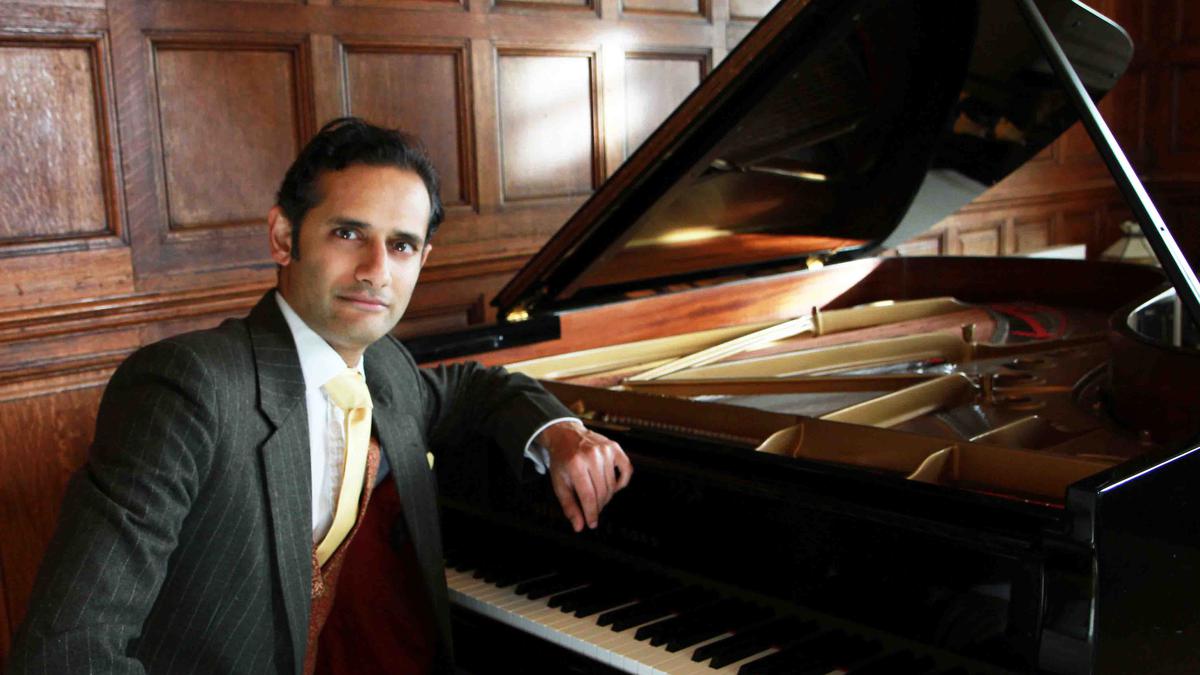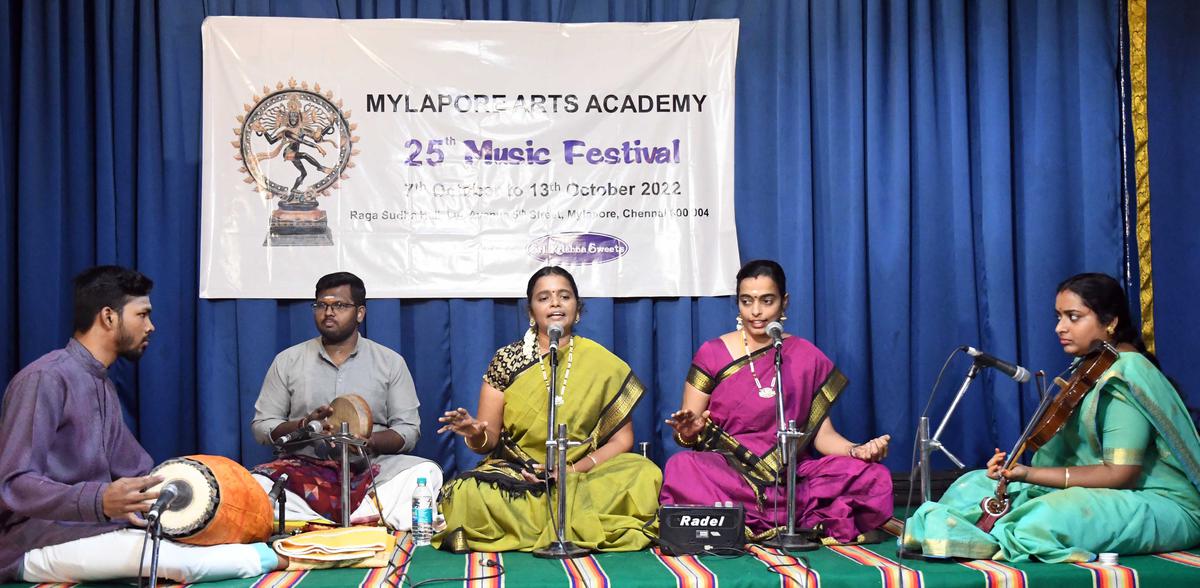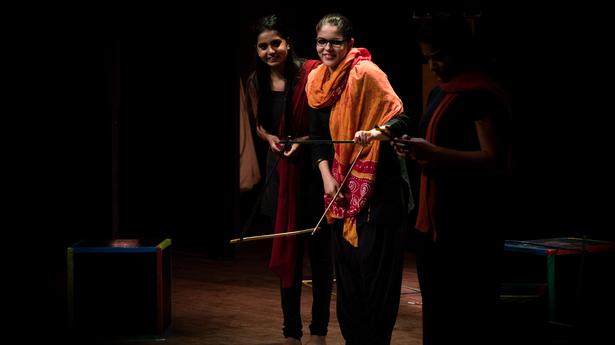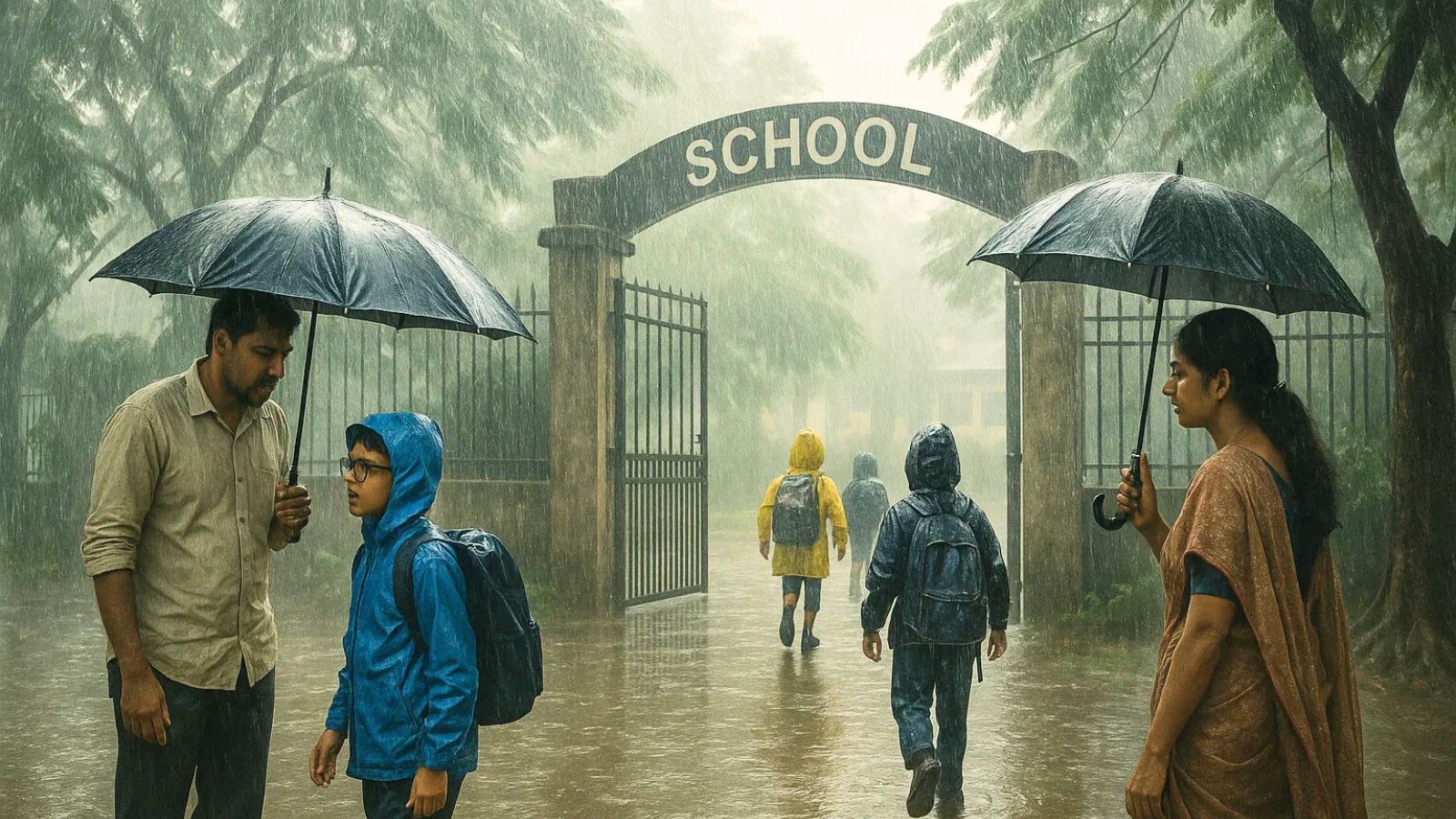Pianist Karl Lutchmayer
| Photo Credit: Special Arrangement
Karl Lutchmayer …. German, surely? There’s that given name, but that surname also has a very Frankish ring to it. Surprise, Lutchmayer is Raj-desi! Around the mid nineteenth century, Karl’s great great grandfather was press-ganged from his Andhra village to work on sugarcane fields in Mauritius as an indentured labourer. As was common practice, the Raj recruiter recorded his name in phonetic English [like Naipaul and Narine], so that the 11-year-old Lakshmiah was thenceforth known as Lutchmayer. Karl’s grandfather came to Bombay to teach French, where he met his Goan teacher-wife, at a teaching conference. Though the family kept the surname, Karl identifies with his Goan roots and divides his time between homes in London and Goa. Born and educated in England, early piano lessons, aged 6, led to the Royal College of Music and the Moscow Conservatoire.
He revived his Indian connections when he was 14, with a radio broadcast for AIR Goa. He returned in 1993 giving concerts in Mumbai, Pune and Goa, and has thereafter been to India several times, not only to perform but to encourage and help young musicians and teachers by conducting master classes and giving lecture demonstrations in music institutions. His creation of an international pre-college music programme in collaboration with Chennai’s Musee Musical, bagged him the Bharat Gaurav Lifetime Achievement award in 2015.
Lecture on Western classical music
Lutchmayer recently launched his series, ‘Rethinking Western Classical Music in the 21st Century’, at the Bangalore International Centre, with the first challenging lecture ‘Can Western Classical Music Be Decolonised?’ A gadfly, who enjoys stinging people out of habitual notions and reactions, he shot out buzz barbs — Woke Decolonisation PC — and examined the effects of nomenclature on Western Classical Music. He deconstructed the canon, exploring not only the definition of “classical” but also what “music” means today and how it has morphed into its existing state in India.
A point he raised is whether Indian students have much in common with the alien European culture from which Western classical music stems, whether it is relevant; does it have to be decolonised? The fact is that western colonisation — culturally, intellectually, academically — never wholly disappeared, even after India gained Independence. Since the 1950s, Indians have enthusiastically consumed Hollywood movies and trend-setting glossy magazines that replaced the staid cultural English stick. Star TV, MTV and other globalisation soon followed in a tsunami of internet accessibility. Admittedly most of it is pop culture, but Western classical music practitioners in India probably did not/do not feel they are tethered to some alien motherboard.
Karl Lutchmayer presenting his lecture series at Bengaluru recently.
| Photo Credit:
Special Arrangement
Encouraging indigenous elements
Lutchmayer’s decolonisation seeks to encourage more indigenous elements by way of curricula, practice and programmes. Why, for example, should Music Boards in distant Blighty, conduct exams in India? [Alert for Chennai readers: of all the western music centres, their city sat 10,000 exams, the highest in the world, in the given year]. Why shouldn’t a Bollywood or Indian folk song be an exam piece, instead of limiting the choice only to the “mainstream canon”? He gave a delightful demonstration by scoring the popular Goan song, ‘Gonzaga’, for three ascending grades, which fulfilled all exam criteria such as technique, compositional and aural comprehension. Such native compositions underline Lutchmayer’s conviction that identification with, feeling for, the piece, would make it more comfortable for an Indian examinee. That was best proved during question time: a chorister said he felt happiest, most “himself”, while singing a native song as an exam piece, as it was so natural to him and he didn’t have to worry about pronunciation, comprehension, and the other pitfalls of singing an imported song.
Western classical music itself has been enriched with various intercultural borrowings, as Lutchmayer demonstrated in his closing recital: Edvard Grieg thawed Nordic chill in his sprightly ‘Puck’, spirited from Shakespeare’s sunny wood, while Liszt’s famous Hungarian Rhapsody was enlivened with the composer’s native folk and gypsy rhythms and sweep.
Lutchmayer’s talk raised many important and interesting issues such as what is “valid” music in the 21st century, and how music and musicians in India, hitherto sidelined, can be reinstated. The bottom line is whether one enjoys making music, of any kind; if it is relevant to the individual in any way — personally culturally ethnically globally — it deserves to be fostered.
One can look forward to the next instalment of his provoking ideas, presented in his unique way: articulate, his erudite research casually tossed out impromptu, and his keyboard mastery in the pieces he includes in his presentation.






